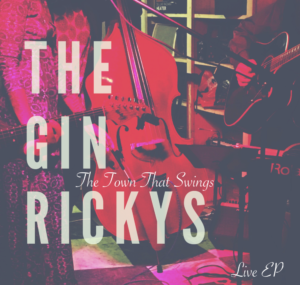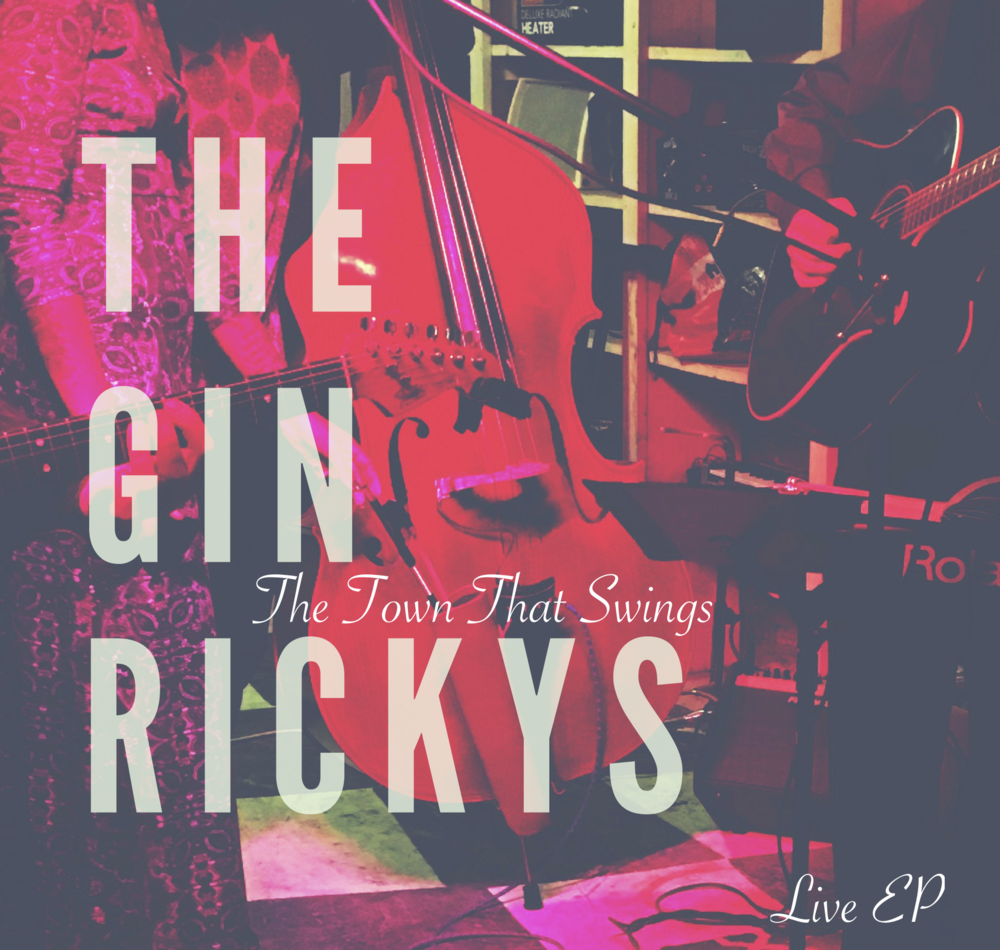 It’s really easy to fall in love with The Gin Rickys. They’re part throwback to the times when jazz music was pop music, and part lounge act that can sell the blues with surprising authenticity. It’s the kind of band where an upright bass isn’t just a novelty — it’s imperative, and if you aren’t able to play tastefully, don’t even bother picking up your instrument. Plus, without the right kind of leader, the whole thing would crash and burn in a sea of cheese.
It’s really easy to fall in love with The Gin Rickys. They’re part throwback to the times when jazz music was pop music, and part lounge act that can sell the blues with surprising authenticity. It’s the kind of band where an upright bass isn’t just a novelty — it’s imperative, and if you aren’t able to play tastefully, don’t even bother picking up your instrument. Plus, without the right kind of leader, the whole thing would crash and burn in a sea of cheese.
Thankfully, though, they do have the right leader. And she comes in the form of Ariana Harin. Which is why, if nothing else, “The Town That Swings,” the group’s latest six-song live EP, is a must-listen for anyone who even flirts with the kind of genres these guys showcase. Not only does she have the pipes to hang with the music surrounding her, but she also has a presence that transcends recordings. Hearing Harin sing on record makes you want to see her live. It’s an unmistakable aura from someone who really actually does know how to sing.
And holy hell. Ariana Harin really knows how to sing.
Looking for some waltz-like blues that ought to make early-years Etta James proud? Try “Ain’t My Baby No More,” a broken-hearted ballad that wouldn’t be out of place on a Christmastime rom-com, right at the scene when you think the couple du jour is about to call it quits. Harin’s vocals ache, right up to and including the deep growl she intones ever so slightly about halfway into the track. Throw in some saloon-style piano and a break for Stefan Edward’s refined guitar work, and you have all the ingredients for a deliciously sad four-star meal.
They paint with the same color on the short “Too Good For You” and the moody “Blues Chose Me.” The former comes equipped with a fun callback to doo-wop days with its subtle-yet-playful backing vocals that echo the best of Motown. Better yet is the organ that kicks in around the 40 second mark, hitting all the right notes for a formula tried and true. The latter, meanwhile, showcases the six-string exquisitely — and it does so in a way that grants the song a striking level of honesty. Besides: When you have such a sultry voice offer a line like “Look what I done/Got no more tears to cry” on top of that guitar, it’s nearly impossible to fail.
And while failure isn’t something that comes often here, the only miss is “Don’t You Come Back To Me.” Standing out as the only non-blues/jazz tune on the EP, it’s a bit of a sore thumb, even though it features a nice pop groove and Harin’s tireless commitment to going for it despite the musical soul of the group being compromised. You need power for a song like this to work, and instead of asserting itself, the track winds up being three-and-a-half minutes of a band holding back. Or, at least so it sounds.
None of that matters, of course, when they veer back to the jazzy side of things. “Town That Swings,” the best song here, introduces the EP with flair and elegance. At a crisp two-and-a-half minutes, it recalls a time when you were still allowed to smoke in fancy lounges and you’d find rooms filled with tuxedos and cocktail dresses on a typical Wednesday night. Or, for those more modern, think Squirrel Nut Zippers without the camp. Also: It sounds like a vibraphone makes an appearance, and what’s cooler than that? Outside of Miles Davis, the answer is nothing.
“Lost My Love In Paris” then takes a breezy trip down the Seine, fully equipped with warm temperatures and a bright sun. It’s as close to world music as these guys get, and it works splendidly, Harin taking her voice into lazy territory, adding to the tropical vibe the track exudes. Adding more texture to the production is Ricardo Gutierrez’s upright bass, which will make you want to fall in love even if its lead singer asks, “Why did you go and break my heart?” on top of it.
It’s funny, a group so lovable making its bones largely singing about being unloved. And while you surely wouldn’t want anyone in the Gin Rickys to feel even the slightest bit of hurt, they really do know how to turn those feelings into some affectingly soulful music. Suffice to say, that with “The Town That Swings,” they prove that even if the light at the end of the tunnel sometimes seems impossibly dark, the tinniest sliver of illumination is always worth pushing forward.
Especially if you have someone who can sing about it.
*** 3 STARS OUT OF 4 ***

